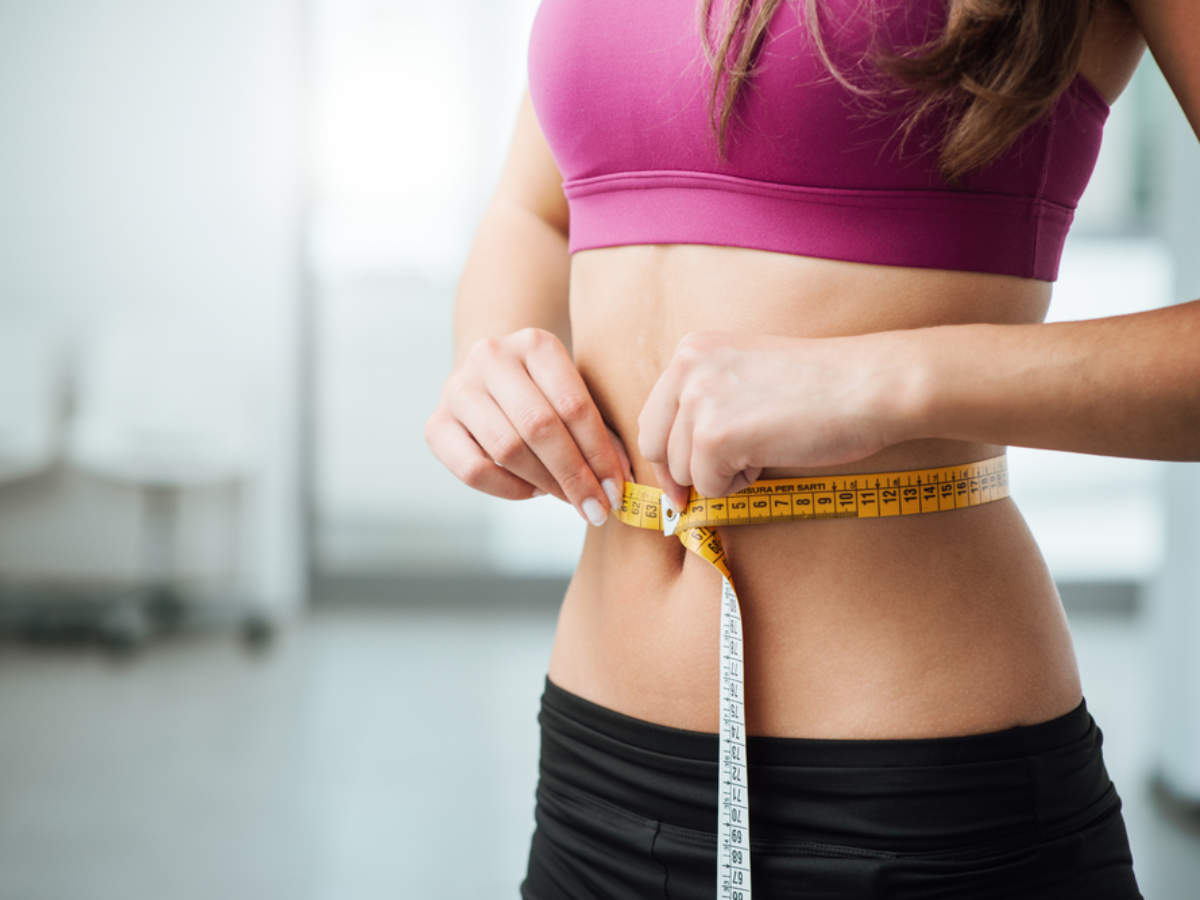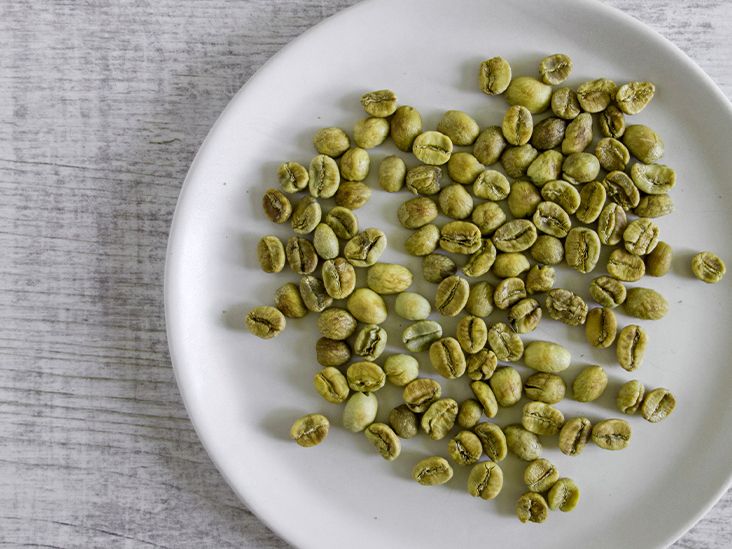Discover how green coffee beans can supercharge your weight loss journey! Learn about their fat-burning benefits, how they work, and tips to incorporate them into your routine for sustainable results.
Weight Loss Home Remedy, Weight Loss at Home, Weight Loss Vegetables, Weight Loss Juice
Doctor Discovers
Shockingly Simple Way to Lose 1Kg per Day without Diet or Exercise
Friends here we are sharing Health Tips for Weight Loss through Weight Loss Diet. In these Weight Loss Tips we are sharing Weight Loss Diet Plan by using Weight Loss Foods or Weight Loss Fruits and Weight Loss Drinks. We suggest you that you must go through this article to find out your weight loss solution without disturbing your routine life and enjoy your precious life.
Weight Loss Workout, Weight Loss 30 Days, Weight Loss Recipes, Weight Loss Quotes
Friends here are some important questions asked by many our readers like how can I lose my Weight? What about (Green Coffee Beans)? Green Coffee Beans Online demands etc.
Weight Loss and Diabetes, Healthy Food
In this article we have suggested some important Weight Loss tips for you. Here we will discuss all about Organic Green Coffee Beans for Weight Loss, Neuherbs Green Coffee Beans or Neuherbs Organic Green Coffee Beans Powder. You may be benefited out of these topics like Neuherbs Organic Green Coffee Beans Review and Neuherbs Organic Green Coffee Beans for Weight Loss.
The first all-natural weight loss solution!
Health Benefits of Coffee Beans
- Reduced Risk of Type 2 Diabetes: By drinking caffeinated or decaffeinated coffee on a regular basis, one can potentially reduce their risk of developing type 2 diabetes.
- Reduced Risk of Heart disease.
- Lower Skin Cancer Risk.
- Lower Cancer Risk in General.
- Lower Risk of Parkinson's disease.
- Live Longer.
Q. Is Green Coffee Bean good for Weight Loss?
Ans.- According to Dr.
Simran Saini from Fortis Hospital India, "Chlorogenic acid in green
coffee acts as an antioxidant. It helps in controlling high blood
pressure; aids weight loss and maintain blood sugar levels in
the body." Green Coffee has particularly become popular
for its Weight Loss Benefits just like green tea.
Q. Are coffee beans good for you?
Ans.- Coffee Beans are
safe to eat but should not be consumed in excess. They're packed with
antioxidants and caffeine, which may boost energy and lower your risk of
certain diseases. That said, when eaten in moderation, Coffee Beans can
be a safe and healthy way to get your caffeine fix.
Q. Is Coffee good for diabetics?
Ans.- Some studies
suggest that drinking coffee, caffeinated and decaffeinated, may
actually reduce your risk of developing diabetes. If you already
have diabetes, however, the impact of caffeine on
insulin action may be associated with higher or lower blood sugar levels.
Q. Can you drink Green Coffee Beans?
Ans.- Green Coffee
Beans are simply regular coffee beans that haven't
been roasted and remain completely raw. Bear in mind that a mug of this
light green drink will not taste like the roasted coffee
you're used to, as it has a much milder flavor. It's said to taste
more like herbal tea than coffee.
Q. How do you take green coffee beans?
Ans.-
Preparation method using ground green coffee beans.
1. Put the
ground green coffee in a cup and pour hot water over it (approx. 90 ° C).
2. Let stand
for about 10 minutes and then filter the broth through a fine sieve.
3. The
healthy green coffee beverage is now ready to drink!
Q. Does green coffee reduce Breast size?
Ans.-
"Drinking coffee can have a major effect on breast
size," said Helena Jernstrom, from Lund University in Sweden, who led
the study. "Coffee-drinking women do not have to
worry their breasts will shrink to nothing overnight.” They
will get smaller, but the breasts aren't just going to disappear."
Q. How much weight can you lose with green coffee?
Ans.- March 28, 2012 -
Ground green coffee beans, taken daily, seem to spur
steady weight loss, according to new research. In a small, 22-week
study, researchers found that 16 overweight men and women lost an average of 17
pounds.
Q. Does green coffee actually work?
Ans.- There haven't been
a lot of studies on Chlorogenic acids and their effectiveness as weight loss
supplements. A review of human studies did show that green
coffee extract may have the potential to help with weight loss.
But the documented effects on weight loss were small and the studies weren't
long term.
Q. Which green coffee is good
for weight loss?
Ans.- Neuherbs Green
Coffee Beans are 100% natural, fresh, raw and
organically grown Arabica coffee beans. These are rich in
Chlorogenic acid an effective fat burner proven to aid weight
loss and fat loss. It also helps to improve metabolism and
energy levels.
Q. Is Green Coffee safe for diabetics?
Ans.- Green coffee bean
extract has anti-diabetic benefits. Green unroasted coffee beans
may have multiple benefits for people with or at risk of type 2 diabetes,
according to new research which shows that an extract from these beans can help
lower blood glucose levels, as well as reduce weight.
Q. What are benefits of green coffee?
Ans.- Green coffee is
simply raw, unroasted coffee beans. Proponents claim
that green coffee, green coffee extract and green
coffee supplements offer a variety of health benefits.
While primarily used for weight loss, green coffee may
help regulate blood sugar and improve cognitive and memory skills in
older adults.
Q. How can I reduce my stomach fat?
Ans.-
Here are 7 effective tips to lose belly fat, backed by scientific
studies.
1. Eat Plenty
of Soluble Fiber.
2. Avoid
Foods That Contain Trans Fats.
3. Don't
Drink Too Much Alcohol.
4. Eat a
High-Protein Diet.
5. Reduce
Your Stress Levels.
6. Don't Eat
a Lot of Sugary Foods.
7. Do Aerobic
Exercise (Cardio).
Q. How much green coffee should you drink a day?
Ans.- Depending on the
concentration of Chlorogenic acid in your supplement, this can range from a
dosage of 240-3000 mg of green coffee bean extract per
day. I recommend that you follow the dosage instructions on the bottle. A
common recommendation is one serving, 30 minutes before each meal.
Q. What are the side effects of Green Coffee?
Ans.-
According to WebMD, GCE has several scary side effects such as -
1. Insomnia.
2. Nervousness.
3. Restlessness.
4. Upset
Stomach.
5. Nausea.
6. Vomiting.
7. Increased
heart rate.
8. Increased
breathing rate.
Q. Is Green Coffee good for skin?
Ans.- The high
concentration of Chlorogenic acid present in the green coffee extract
reduces redness associated with excessive sunlight exposure. Caffeine also
contains anti-aging properties. It limits photo damage, decreases skin roughness
and wrinkle formation, and reduces the appearance of crow's feet.
Q. Can black coffee reduce belly fat?
Ans.- In the short
term, caffeine can boost the metabolic rate and increase fat burning,
but after a while people become tolerant to the effects and it stops working.
But even if coffee doesn't make you expend more calories in
the long term, there is still a possibility that it blunts appetite and helps
you eat less.
Q. How many kg can you lose with green tea?
Ans.- Two reviews
of many controlled trials on green tea supplements
found that people lost about 3 pounds (1.3 kg) on average ( 23 , 24
). Keep in mind that not all fat is the same.
Q. Is green coffee bean extract safe?
Ans.- Green coffee is
Possibly SAFE when taken by mouth appropriately. Also, a
specific green coffee extract (Svetol, Naturex) has been used safely in
doses up to 200 mg 5 times daily for up to 12 weeks. Green coffee also
contains caffeine. There is much less caffeine in green coffee than
in regular coffee.
Q. Do green coffee beans contain caffeine?
Ans.- Green coffee
bean extract does contain some caffeine.
Several studies have shown that caffeine can
boost metabolism by up to 3-11% (3, 4). However, the main active ingredient is
believed to be the Chlorogenic acid.
Q. Which is better coffee or green tea?
Ans.- While green
tea is most commonly associated with antioxidants, white tea actually
contains more. Coffee also contains antioxidants, but in
a much lower concentration than white tea. Both tea and coffee are
capable of providing drinkers with benefits.
Q. Do green beans help you lose weight?
Ans.- Many studies have
suggested that including more plant foods, such as green beans, in
the diet decreases the risk of obesity, diabetes, heart disease, and overall
mortality. Consumption of fruit and vegetables also promotes a healthy
complexion, increased energy, and overall lower weight.
Q. How can I lose my belly fat in a month?
Ans.-
Here are 5 evidence-based ways to lose belly fat -
1. Don't eat
sugar and avoid sugar-sweetened drinks.
2. Eating
more protein is a great long-term strategy to reduce belly fat.
3. Cut carbs
from your diet.
4. Eat foods
rich in fiber, especially viscous fiber.
5. Exercise
is very effective at reducing belly fat.
Q. How can I lose weight in 7 days at home?
Ans.-
A 6-Step Plan to Lose 10 Pounds in Just One Week -
1. Eat fewer
carbs and more lean proteins.
2. Eat whole
foods and avoid most processed junk foods.
3. Reduce
your calorie intake by following these Tips.
4. Lift
weights and try High-Intensity interval Training.
5. Be active
outside of the Gym.
6. Intermittent
Fasting is another simple way to reduce Weight quickly.
About Coffee Bean
As we know, that Coffee
bean is a seed of the Coffea plant and the source for coffee. It is the pit inside the red or purple fruit often referred to as
a cherry. Just like ordinary cherries, the coffee fruit is also a so-called
stone fruit for use. Even though the coffee beans are not technically beans,
they are referred to as such because of their resemblance to true beans. The fruits
– coffee cherries or coffee berries – most commonly contain two stones with
their flat sides together inside. A small percentage of cherries contain a
single seed, instead of the usual two. This is called a "Pea Berry". The
pea berry occurs only between 10 and 15% of the time and it is a fairly common
(yet scientifically unproven) belief that they have more flavor than normal
coffee beans. Like Brazil nuts (a seed) and white rice, coffee beans consist
mostly of Endosperm.
Its the 2 most
economically important varieties of coffee plant are the Arabica and the Robusta; ~60% of the coffee
produced worldwide is Arabica and ~40% is Robusta. Arabica beans consist
of 0.8–1.4% caffeine and
Robusta beans consist of 1.7–4% caffeine. As Coffee is one of the world's
most widely consumed beverages, coffee beans are a major cash crop and an
important export product, accounting for over 50% of some developing
nations' foreign exchange earnings.
To Eat Coffee Beans- All You Need to Know
Contents-
1.
Safety
2.
Benefits
3.
Risks
4.
Amount
5.
Bottom Line
Coffee Beans
Coffee beans are the seeds of the coffee fruit, often known as
the coffee cherry. These bean-like seeds are usually dried, roasted and brewed
to make coffee which we normally take.
Because drinking coffee has been linked to numerous our health
benefits - such as a reduced risk of type 2 diabetes and liver disease - you
may wonder if eating coffee beans has the same effect on other diseases too. Munching
on coffee beans - especially those covered in chocolate - is an increasingly
popular way to get a caffeine fix.
Here we are sharing in this article the potential benefits and
risks of eating coffee beans.
1-Basic Safety
Coffee beans have been eaten for hundreds of years or more by
human.
a. It
is thought that before coffee was developed as a beverage, its beans were often
mixed with animal fat and consumed to boost energy levels.
b. Coffee
beans provide the same nutrients as a cup of Joe, but in a much more
concentrated form.
c. Because
regular coffee is filtered and diluted with water, you only get a portion of
the caffeine and other substances found in the whole bean.
d. What’s
more, eating coffee beans, rather than drinking the beverage may lead to more
rapid absorption of caffeine through the lining of your mouth.
e. Both
the beneficial and negative effects of coffee are amplified when the beans are
consumed whole.
f. As
such, it is best to eat coffee beans in moderation.
g. Those
said, green coffee beans, which are raw aren’t very pleasant to eat. They have
a bitter, woody flavor and can be hard to chew. Roasted coffee beans are
slightly softer.
h. Chocolate-covered,
roasted coffee beans are often sold as a snack and are easy to find
in your local store.
2-Potential Benefits
While many studies have examined the benefits of coffee as a
beverage, few have explored the effects of eating coffee beans. Yet, consuming
the beans likely provides some of the same benefits as sipping the drink. Here
are some potential benefits of snacking on coffee beans.
I. An Excellent Source of Antioxidants
a. Coffee
beans are packed with powerful antioxidants, the most abundant being Chlorogenic acid, a family of health-promoting Polyphenols.
b. Studies
show that Chlorogenic acid may reduce your risk of diabetes and combat
inflammation. Some trials suggest it may have cancer-fighting properties
as well.
c. The
amount of Chlorogenic acid in coffee beans varies depending on the type of bean
and roasting methods.
d. In
fact, roasting can result in a 50–95% loss of Chlorogenic acid though coffee
beans are still believed to be one of the best dietary sources.
II. An Easily Absorbed Caffeine Source
a. Caffeine
is a natural stimulant found in a variety of food and drinks, including coffee
and tea.
b. On
average, eight coffee beans provide an equivalent amount of caffeine as one cup
of coffee.
c. Your
body absorbs caffeine from whole coffee beans at a quicker rate than that from
liquid coffee.
d. Caffeine impacts
your brain and central nervous system, resulting in many benefits. For example,
this substance can boost energy, alertness, mood, memory and performance.
e. One
study found that drinking 2 cups of coffee with 200 mg of caffeine the
equivalent of around 17 coffee beans was as effective as a 30-minute nap at
reducing driving mistakes.
f. In
another study, a 60-mg shot of caffeine about 1 espresso or 5 coffee beans
resulted in improved contentment, mood and attention.
g. Caffeine
works by inhibiting the hormone Adenosine, which causes drowsiness and
tiredness.
h. This
chemical may also improve exercise performance and weight loss by boosting
metabolism.
III. Other Potential Benefits
Observational studies have linked coffee to multiple health
benefits, including a reduced risk of the following:
·
Death from all causes.
·
Heart disease and stroke.
·
Certain cancers.
·
Liver illnesses, including nonalcoholic fatty liver disease,
liver fibrosis, and liver cirrhosis.
·
Type 2 diabetes.
·
Brain disorders, such as depression, Alzheimer’s disease, and
Parkinson’s disease.
·
Animal and human studies further suggest that green coffee bean
extract may reduce blood pressure in people with already high levels.
·
However, keep in mind that these benefits are based on
observational studies not rigorous controlled trials. Therefore, more research
is needed before firm conclusions can be drawn.
Potential Risks
While eating coffee beans in moderation is perfectly healthy,
eating too many may cause problems. Additionally, some people are sensitive to
substances in the beans, which may lead to unpleasant side effects.
I- Heartburn and Stomach Upset
·
Certain compounds in coffee beans can cause stomach upset in
some people.
·
This is because caffeine and other compounds called catechol
present in coffee beans have been shown to increase stomach acid.
·
This can lead to heartburn, an uncomfortable condition in
which stomach acid pushes back up your esophagus.
Green Coffee Beans for Weight Loss
·
It may also cause bloating, nausea, and stomach upset.
·
Some studies note that the use of green coffee bean extract in
higher doses caused diarrhea and stomach upset in people with sensitive
stomachs.
·
If you suffer from heartburn or have other stomach problems, you
may want to avoid or limit your coffee and coffee bean intake.
II- Laxative Effect
·
Drinking coffee exhibits a laxative effect in some
people.
·
Caffeine does not seem to be the culprit, as decaffeinated
coffee was also found to increase bowel movements.
·
Although rare, even low doses of caffeinated coffee may cause
diarrhea.
·
People with bowel conditions, such as inflammatory bowel disease
(IBD) or irritable bowel syndrome (IBS), should consume coffee beans with
caution.
III- Sleep Disturbance
·
While caffeine in coffee beans can give you a much-needed energy
boost, it can also lead to sleep problems particularly in
caffeine-sensitive individuals.
·
Studies suggest that people who are sensitive to caffeine or who
consume too much are at a greater risk of struggling to fall and stay asleep,
which can prompt daytime exhaustion.
·
The effects of caffeine can last up to 9.5 hours after
consumption.
·
If your sleep is affected by caffeine, reduce the amount you
consume during the day and avoid it completely close to bedtime.
IV- Other Potential Side Effects
High caffeine intake is linked to other unpleasant and
potentially dangerous side effects, including:
·
Increased anxiety symptoms, such as palpitations, nausea and
feelings of stress.
·
withdrawal symptoms including headaches, anxiety, tiredness,
tremors, and poor concentration if you abruptly abstain from coffee
·
increased risk of pregnancy problems, such as
miscarriage, low birth weight, and early labor
If you are sensitive to caffeine, struggle with anxiety or are
pregnant, it may be best to limit or avoid eating coffee beans.
Likewise, if you are experiencing withdrawal symptoms, try
reducing caffeine intake more gradually.
Dose or quantity of Coffee Beans
The number of coffee beans you can safely consume comes down to
a safe level of caffeine.
Although tolerance to caffeine varies, single
doses of up to 200 mg and usage up to 400 mg per day around 4
cups of filtered coffee are considered safe for
adults. Friends beware if anything more than this quantity may
negatively impact your health.
Beware of------
·
There is currently insufficient data available to determine safe
caffeine levels for children and teens and they are likely to be more sensitive
to its effects.
·
The amount of caffeine in coffee beans varies based on size,
strain, and the duration of roasting.
·
For example, Robusta coffee beans generally contain around twice
as much caffeine as Arabica coffee beans.
·
On average, a chocolate-covered coffee bean contains around 12
mg of caffeine per bean including the caffeine in the chocolate.
·
This means that adults can eat around 33 chocolate-covered
coffee beans without going over the recommended safe level of caffeine.
However, these treats may also contain excessive calories, high amounts of fat
and added sugar so it’s best to limit your intake.
·
What’s more, if you are consuming caffeine from other foods,
drinks, or supplements, you may want to moderate your coffee bean consumption
to avoid any unpleasant side effects.
The Bottom Line
Coffee beans are safe to eat but should not be consumed in
excess. They’re packed with antioxidants and caffeine, which may boost
energy and lower your risk of certain diseases. However, too many may
cause unpleasant side effects.
Chocolate-covered varieties may also harbor
excess calories, sugar, and fat. That said, when eaten in moderation,
coffee beans can be a safe and healthy way to get your caffeine fix.
Summary
Coffee beans are safe to eat. However, consuming
coffee beans in moderation is advised because their nutrients are more
concentrated than liquid coffee’s.
Coffee beans are a concentrated source of
antioxidants and caffeine. They have anti-inflammatory properties that protect
against certain diseases and boost energy and mood.
Caffeine levels in coffee beans vary depending on
roasting methods and bean type. While you can eat quite a few without exceeding
safe caffeine limits, snack varieties are often covered in chocolate and may be
unhealthy if consumed in excess.
Warning
Eating too many coffee beans may cause a wide range
of negative effects, such as heartburn, stomach upset, increased bowel
movements, sleep problems, anxiety and pregnancy complications.
Coffee Bean
Benefits- Best
Green coffee Beans: Health Benefits- HEALTH
BENEFITS OF GREEN COFFEE BEANS
Follow us @
#Pinterest, #LinkedIn, #FcBk, #X, #FBPage, #Tele, #GovJob, #Awareness, #Information, #HealthiFashion, #OldPapers, #Insta































